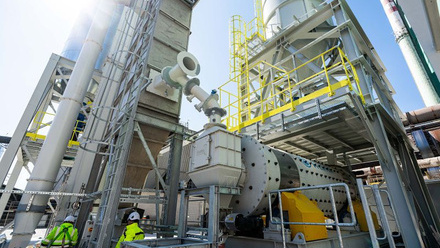Banks support a just transition to net zero economies
A joint Multilateral Development Bank statement outlines a commitment to five High-Level Principles for a just transition.

The Multilateral Development Banks (MDBs) have released a joint statement outlining support for countries in moving away from the use of fossil fuels and toward low greenhouse gas (GHG) emissions and climate resilience in a way that shares the costs and benefits, while supporting and protecting communities, industries, and workers.
The document states, 'The High-Level Principles for MDB Support for a Just Transition have been guidingthe joint work of the MDBs ahead of COP26. They will inform the development of practical MDB just transition resources, including approaches, tools and instruments that can support a just transition, as well as partnerships with finance, business, civil society and others that can help scale their support for a just transition. In the context of the Covid-19 crisis, the principles may also provide guidance on MDB support for the development of green recovery measures that generate decent, sustainable jobs in an inclusive manner, while accelerating decarbonisation and the transition to a sustainable economy.'
The MDBs will also work with national development banks and other financial institutions to develop financing and policy strategies supporting a just transition that promotes economic diversification and inclusion.
A just transition is part of the 2015 Paris Agreement, whose ambition is to keep the rise in global temperatures to 1.5°C compared to pre-industrial levels.
The five principles are –
- delivering climate objectives while enabling socio-economic outcomes and building progress on Paris Agreement goals and the Sustainable Development Goals
- support to move away from greenhouse gas emissions-intensive economic activities through financing, policy and advisory activities, and knowledge sharing
- the mobilisation of public and private finance and enhanced coordination
- support for affected workers and communities to mitigate impacts and increase opportunities
- transparent and inclusive planning and monitoring with relevant stakeholder and affected groups.
‘These principles for a just transition will help us support our countries of operation as they move from carbon-intensive economies to more renewable and sustainable ones,’ said the European Bank for Reconstruction and Development’s Harry Boyd-Carpenter. ‘The principles provide high-level guidance to ensure that MDBs consistently, credibly and transparently contribute to the aims of a just transition – one that both shares the substantial benefits of climate action and supports those who risk losing economically, whether countries, industries, consumers or workers.’







